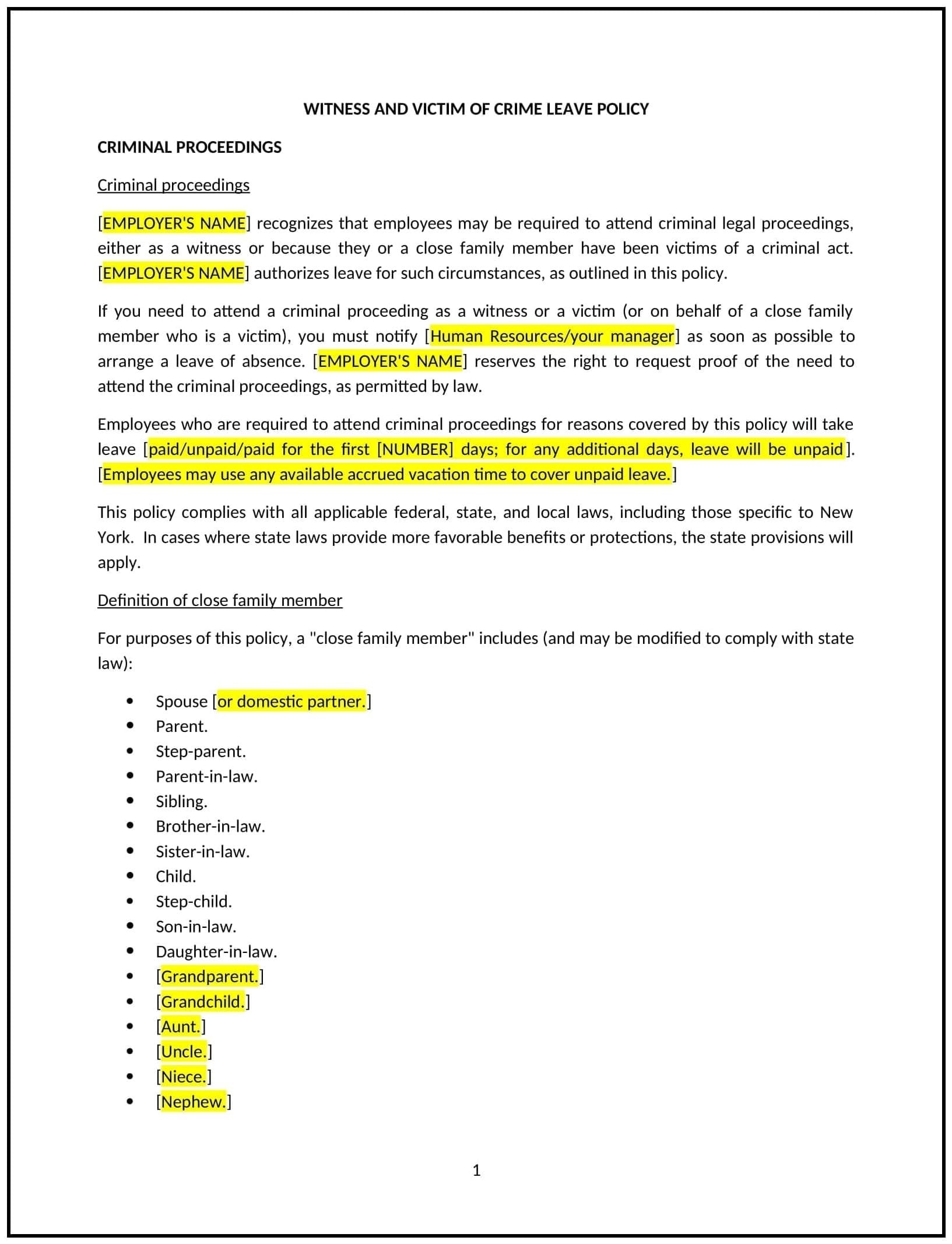Witness and victim of crime leave policy (New York): Free template
Got contracts to review? While you're here for policies, let Cobrief make contract review effortless—start your free review now.

Customize this template for free
Witness and victim of crime leave policy (New York)
This witness and victim of crime leave policy is designed to help New York businesses provide time off for employees who are victims or witnesses of a crime. Whether employees need time off to attend court proceedings, recover from the emotional impacts of a crime, or fulfill their obligations as a witness, this template provides a structured approach to managing leave requests related to crime involvement.
By adopting this template, businesses can support employees through challenging situations and promote a compassionate workplace.
How to use this witness and victim of crime leave policy (New York)
- Define eligibility: Clearly specify which employees are eligible for crime-related leave, including whether the leave applies to both victims and witnesses of crimes.
- Specify types of leave: Detail the types of leave available to employees, including paid or unpaid leave for attending court hearings, providing testimony, or recovering from a crime-related incident.
- Outline notification procedures: Set guidelines for how employees should notify their employers about taking leave for crime-related reasons, including the required documentation such as court subpoenas or police reports.
- Provide guidance for extended leave: Address situations where an employee may need extended time off for recovery or participation in criminal proceedings, and how businesses will accommodate these requests.
- Set job protection guidelines: Explain that employees taking leave under this policy will have their job protected, and outline whether or not they will be paid during their absence.
Benefits of using this witness and victim of crime leave policy (New York)
This policy offers several benefits for New York businesses:
- Supports employee well-being: Allowing time off for crime-related leave helps employees cope with the emotional or legal impacts of being a victim or witness, promoting overall well-being.
- Ensures legal compliance: This policy helps businesses comply with New York state laws requiring leave for crime victims and witnesses, reducing the risk of legal disputes.
- Reduces workplace disruptions: A clear leave policy ensures that employees can fulfill their obligations as witnesses or recover from crimes without causing confusion or disruption in the workplace.
- Enhances company reputation: A business that provides compassionate leave for victims and witnesses of crime shows a commitment to employee care, enhancing its reputation as a supportive employer.
- Maintains fairness: The policy ensures that all employees are treated equally when requesting crime-related leave, preventing potential discrimination or inconsistency.
Tips for using this witness and victim of crime leave policy (New York)
- Communicate clearly: Ensure all employees are aware of the policy, including the types of leave available, the procedures for requesting leave, and the documentation required.
- Be flexible: While following the policy guidelines, offer flexibility for employees who may need additional time off due to personal or emotional circumstances related to the crime.
- Track leave requests: Maintain accurate records of leave requests and ensure that employees comply with reporting procedures to ensure consistency and transparency.
- Provide support: Offer resources such as counseling services or employee assistance programs (EAPs) for employees who may need additional support during or after their leave.
- Review regularly: Update the policy as necessary to reflect changes in state laws, business needs, or employee feedback.